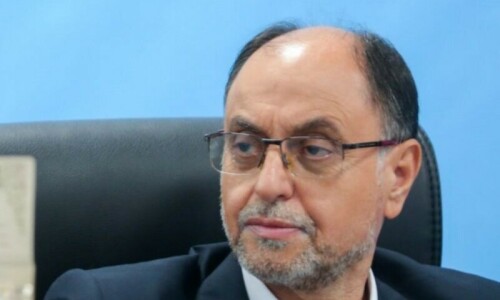IN addition to those living in Pakistan’s conflict zones, in recent years the urban citizenry too has become uncomfortably familiar with acts of terrorism. The perpetrators seem to consider no place or occasion off limits. From public areas to places of worship, religious and political gatherings all have at some point come under attack. Has the law-enforcement apparatus met with any success in quelling such attacks? In pockets, it does seem that the situation is improving. Consider Karachi, which has seen terrorist attacks in places frequented by the public — as delineated from law-enforcement and military installations that the terrorists claim are their main targets. Such instances include the bombing of the Ashura procession in December 2009 and that of the shrine of Abdullah Shah Ghazi in 2010. Yet, over the past year, various events and occasions that both ordinary people and the law-enforcement set-up feared would be targeted thankfully passed off without incident. Also, a number of high-profile militants have been arrested, implying that protecting the people is possible if there is sufficient will on the part of law-enforcement personnel.
While this is encouraging, it is clearly not enough. Combating the monster of terrorism requires a multi-pronged and holistic approach where different methods achieve success in concert. One area where law-enforcement efforts continue to under-perform is at the level of prosecution. Trials of suspected terrorists or militants tend to yield little because of either poor investigation or prosecution. A case in point is the 2006 Nishtar Park bombing, for which three men believed to be associated with the proscribed Lashkar-i-Jhangvi remain in custody. In the six years that have passed, the prosecution has presented merely one witness. This pattern is repeated around the country in terms of prosecution, and sends out all the wrong signals. True, there are difficulties: hard evidence in such cases can be difficult to gather and, given the profiles of the terrorists involved, there is always the possibility of witnesses, prosecutors and judges being intimidated. If the police and prosecution could improve their performance in this regard, we would see greater success in combating terrorism.











































Dear visitor, the comments section is undergoing an overhaul and will return soon.